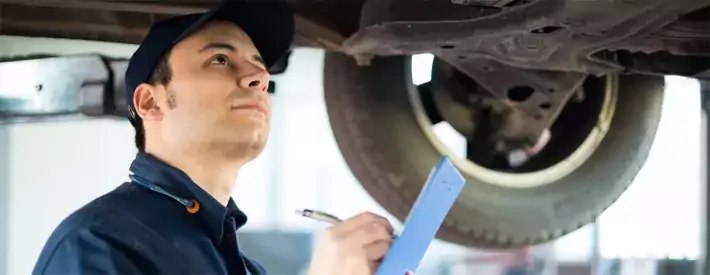Why the MOT consultation has unified automotive

The government’s open consultation on the MOT has done something that many perhaps didn’t think was possible, create a unified response.
The consultation looked at whether the timeframe for the first date a vehicle should be MOT tested should be shifted to four years rather than the current three, as well as views on other changes to MOT testing.
The answer across the automotive industry was a resounding no.
The IMI’s response to the consultation was clear from the beginning: “The IMI will strongly advise that increasing the time before a periodic inspection of cars is detrimental for road safety” said Hayley Pells, the IMI’s Policy Manager. “It reduces the frequency of maintenance and inspections that are critical to ensuring that vehicles are in good condition and performing at their best.”
And IMI research backed up the position.
As part of its response to the Department for Transport’s MOT Consultation, the IMI researched the views of the motor industry and motorists . Alongside its own in-depth analysis of MOT data , the new research further underlines the view that any change to the current date for the first MOT or the frequency of MOTs would significantly increase road user risk.
“We received a resounding confirmation – 87% – from our members that the first MOT should not be extended due to increased road safety risk”, explained Pells. “And while only 51% of motorists we surveyed felt the same, we believe there is sufficient weight of evidence to give the Department for Transport a very clear indication that any change to the start date would be detrimental for all road users.”
And there was consensus across the industry. The Independent Garage Association’s Chief Executive Stuart James said: “Not only would extending the period of a vehicle’s first MOT be detrimental to road safety, it is our belief that it will cost consumers more money long-term. This includes increased repair costs due to defects taking longer to be picked up, all costs associated with accidents, rising insurance premiums, and additional MOT and repair costs for second owners of cars between 3 and 4 years old.”
It was a position echoed by the National Franchised Dealer Association.
“The NFDA strongly opposes the government’s proposed changes to the current MOT system. The public that are buying new cars are predominantly buying those from franchised dealers, therefore a substantial amount of first time MOTs will be conducted at a franchised dealer site. It is common consensus from our members that increasing the initial test from 3 years to 4 years will have a detrimental impact on vehicle safety and unnecessarily risk lives”, said the NFDA’s Chief Executive Sue Robinson.
SMMT research also showed the public were in favour of keeping the MOT in its current format.
Mike Hawes, SMMT Chief Executive, said: “Safety is the number one priority for the automotive industry and the MOT is a crucial component in keeping the UK’s vehicles and roads safe. Our survey shows that drivers support the existing MOT frequency and that there is little appetite to change it, despite the increased cost of living. If changes to the MOT are to be made, these should enable testing of advanced electrified powertrains, driver assistance technologies and connected and automated features, as drivers value the peace of mind the MOT offers.”
But for all the solidarity that a shift from three to four years for the first MOT is a bad move, there are some voices that are in favour of the move.
A Startline Motor Finance survey showed that almost 90% of respondents backed a four year MOT test.
Paul Burgess, CEO at Startline Motor Finance, said: “There’s clearly overwhelming public backing for this move, according to our findings. This puts the public very much at odds with the motor industry, which generally believes that a three year MOT is essential and has been very vocal in criticising the idea.
“It’s striking that only around one in three people say that the cost of the test is a factor in backing the government’s proposal. It appears that drivers simply have a high degree of confidence in the ability of modern cars to resist any kind of treatment, believing that major faults are unlikely to arise by extending the test for a year.”
That said Burgess is very aware of the risks changes to the MOT could have.
“The MOT test plays a part in taking dangerous cars off the road that are a risk to not just their driver and passengers but all road users. It will be very interesting to hear the results of the government consultation,” he said.
With the consultation now closed it will be a case of wait and see what happens to the MOT in the future. A summary of responses, including the next steps, will be published within three months of the consultation closing.

